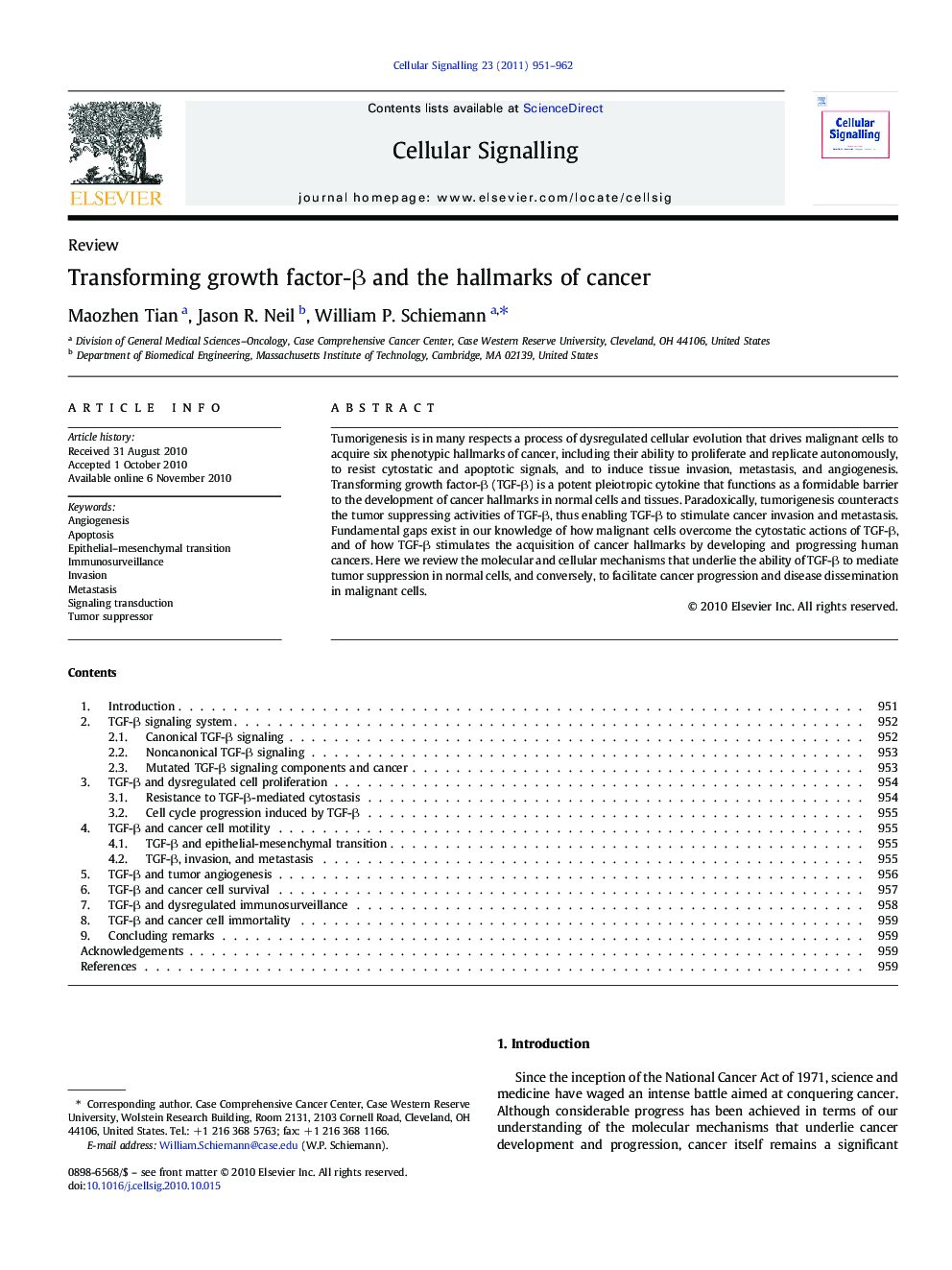| Article ID | Journal | Published Year | Pages | File Type |
|---|---|---|---|---|
| 1963723 | Cellular Signalling | 2011 | 12 Pages |
Tumorigenesis is in many respects a process of dysregulated cellular evolution that drives malignant cells to acquire six phenotypic hallmarks of cancer, including their ability to proliferate and replicate autonomously, to resist cytostatic and apoptotic signals, and to induce tissue invasion, metastasis, and angiogenesis. Transforming growth factor-β (TGF-β) is a potent pleiotropic cytokine that functions as a formidable barrier to the development of cancer hallmarks in normal cells and tissues. Paradoxically, tumorigenesis counteracts the tumor suppressing activities of TGF-β, thus enabling TGF-β to stimulate cancer invasion and metastasis. Fundamental gaps exist in our knowledge of how malignant cells overcome the cytostatic actions of TGF-β, and of how TGF-β stimulates the acquisition of cancer hallmarks by developing and progressing human cancers. Here we review the molecular and cellular mechanisms that underlie the ability of TGF-β to mediate tumor suppression in normal cells, and conversely, to facilitate cancer progression and disease dissemination in malignant cells.
